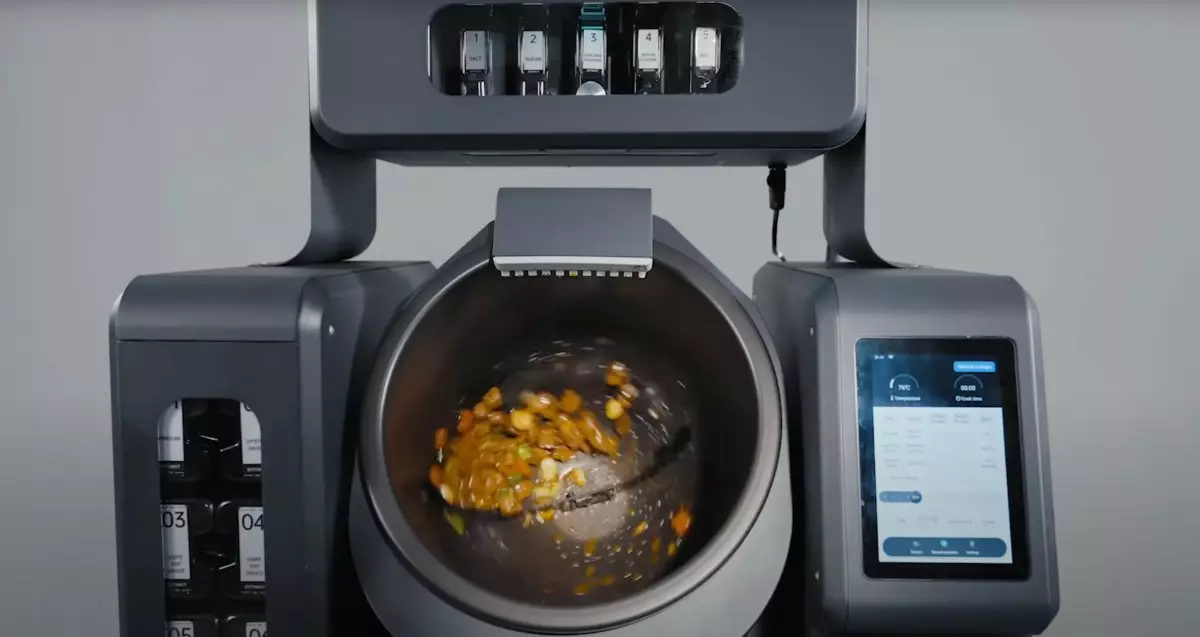The restaurant industry has faced significant challenges since the onset of the COVID-19 pandemic, with staffing shortages becoming a pervasive issue worldwide. Establishments are struggling to find enough workforce to meet growing consumer demand. This labor crunch has prompted many owners and managers to seek innovative solutions to streamline operations and reduce reliance on human staff.
To combat labor shortages, numerous startups have emerged with technological advancements aimed at reinventing kitchen operations. One standout example is the Miso Robotics, well-known for its burger-flipping robot arm that has captured public attention. However, the spotlight is not solely on high-profile robots; more practical solutions are also gaining traction. A notable contender is Botinkit, which has developed the Omni—a robotic system designed with a more subtle approach to automation. Unlike traditional robots, the Omni resembles a self-service kiosk equipped with a touchscreen, integrating smoothly into any kitchen without overwhelming staff.
The Omni’s design prioritizes functionality over novelty. It’s capable of performing various cooking techniques, such as frying and stewing, specifically tailored for wok-based dishes. This versatility allows restaurants to maintain a high level of service while requiring significantly fewer human hands in the kitchen. According to Botinkit, implementing the Omni could potentially reduce kitchen staffing needs by up to 50%, drastically reshaping labor dynamics in culinary establishments. This significant impact reflects a broader trend towards automation, where consistency and efficiency take precedence over traditional cooking practices.
Dedication to innovation stems from the insight of Botinkit’s CEO, Shirley Chen, who combined her experience as both a restaurant owner and a strategist in a global accounting firm. Her unique perspective led her to understand the complex challenges that restaurant owners face. “In envisioning the future of kitchens, I see a landscape that differs fundamentally from our current understanding,” Chen stated in an interview with TechCrunch. By focusing on automating complex chef tasks, Botinkit aims to address the longstanding issues surrounding consistency and quality in food preparation, which have historically depended heavily on human intuition.
The investment community is recognizing the potential of Botinkit, as evident by their successful funding rounds. The startup recently raised $21 million through a Series A extension, highlighting the escalating interest in restaurant automation technologies. As part of their growth strategy, Botinkit is not only targeting their dominant market in Asia but also expanding operations into Europe and the United States. This funding will allow them to enhance their technology, improve their outreach, and ultimately transform how restaurants operate in an increasingly competitive landscape.
The ongoing labor shortages faced by the restaurant industry are prompting a reevaluation of traditional workflows. Automation through innovative technologies like Botinkit’s Omni system presents a compelling solution that promises enhanced efficiency and consistency in food preparation. As the industry embraces these advancements, the future of restaurants may well lie in a harmonious blend of human skill and robotic precision, paving the way for a new era in culinary operations. Businesses that adapt to these changes are likely to stay ahead in the evolving landscape of the global food service sector.

